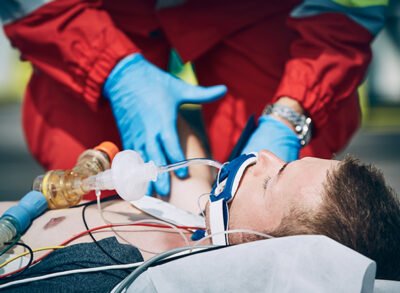Neuro course for Emergency
₹8,000.00
Description
1. Neurological examination in ICU and Assessment of coma – Part 1 & Part 2
2. Monitoring in the Neurocritical care ICU
3. Intracranial Pressure Monitoring
4. Management of Acute Ischemic Stroke
5. Management of Intra Cerebral Haemorrhage & Subarachnoid Haemorrhage
6. Management of Seizures and Status Epilepticus
7. Meningitis and Encephalitis for Critical Care
8. Diagnosis and Management of Guillain-Barre Syndrome & Myasthenia Gravis in Critical Care
9. Neurocardiology Monitoring – CT, MRI, TCD, EEG
10. Critical Illness Polyneuropathy & Myopathy
11. Anoxic Brain Injury & Brain Death
12. Spinal Cord Injury – Part 1, Part 2 & Part 3
Course Outcome :
Given a patient with CNS crisis and/or an altered level of consciousness, or with progressive life-threatening neuromuscular disorders, the student must be able to recognize the nature of the situation, institute immediate life-sustaining measures, carry out an appropriate neurological examination, derive a differential diagnosis, and continue with appropriate diagnostic and supportive measures until the problem is eventually resolved.
- Recognize and initiate the acute management of Coma, acute hydrocephalus, brain death evaluation, persistent vegetative state, intracranial vascular accidents (subarachnoid hemorrhage, intraventricular hemorrhage, intraparenchymal hemorrhage), Sub-Dural Hematomas, Epi-Dural Hematomas, Status Epilepticus, Intracranial Infection, Intracranial Hypertension, Spinal Cord Injury.
- Recognize, investigate, and describe the pathophysiology and treatment of raised intracranial pressure.
- Discuss the Monroe-Kellie doctrine and the physiology of cerebral vascular auto-regulation.
- State the advantages, disadvantages, and indications for hyperventilation, Mannitol, hypertonic saline, hypothermia, and induced hypertension in the management of raised ICP.







